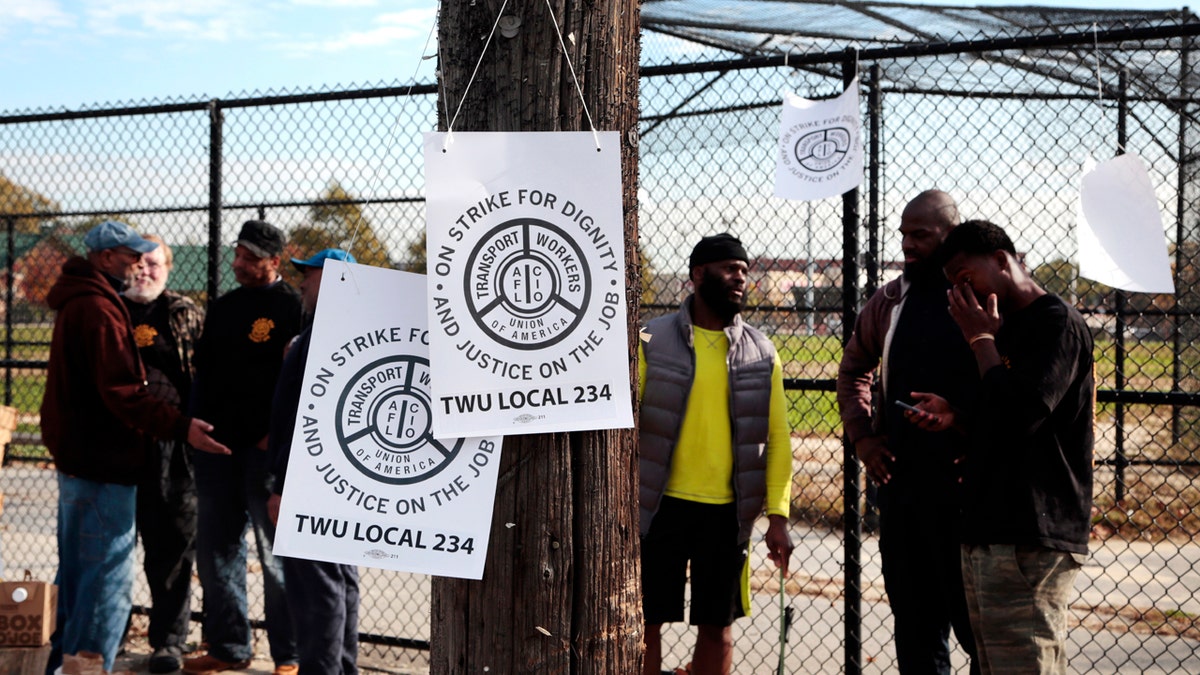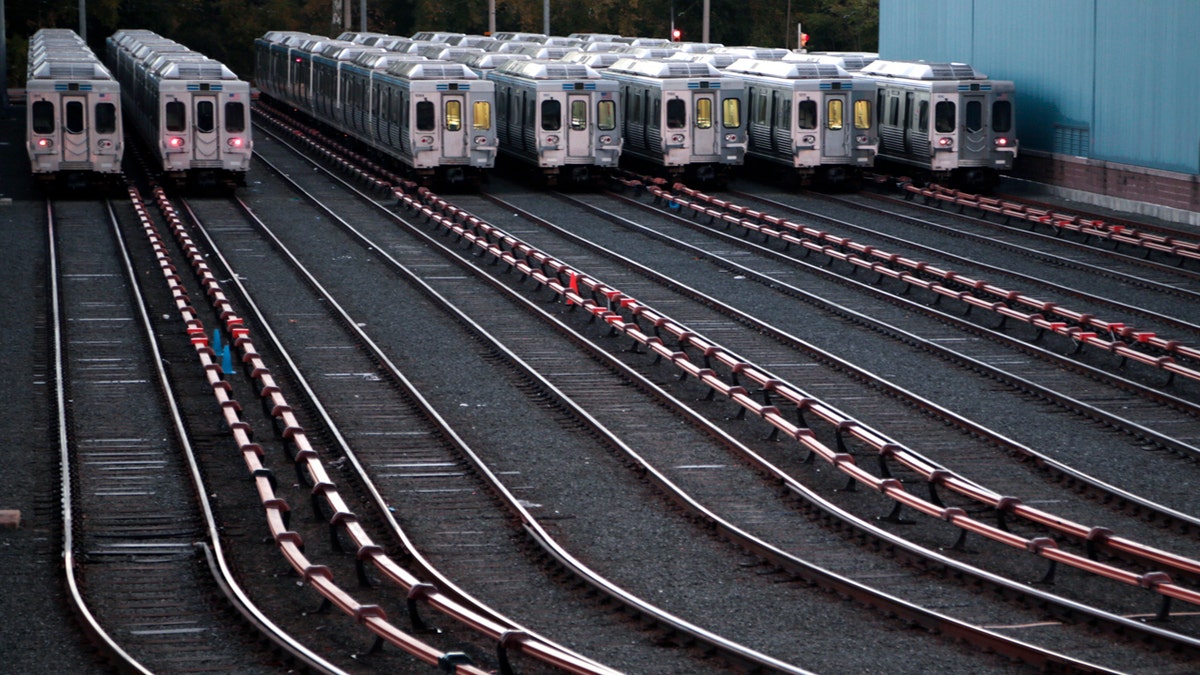
Signs hang on a telephone pole as workers picket across from the Callowhill SEPTA Depot Tuesday, Nov. 1, 2016, in Philadelphia. (AP Photo/Jacqueline Larma)
PHILADELPHIA – Commuters jumped on bikes, grabbed cabs and crammed into carpools as Philadelphia transit workers went on strike Tuesday after the city's main transit agency and a union representing about 4,700 workers failed to reach a contract agreement.
Regional rail travel to the suburbs was unexpectedly disrupted at the start of the evening rush as some pickets blocked access to those facilities for workers, and a number of trains had to be canceled. The pickets began clearing from those facilities around 5 p.m. after Southeastern Pennsylvania Transportation Authority got an injunction, but the cancelations were complicating an already slow and jam-packed commute.

Market-Frankford line trains remain idle at a Southeastern Pennsylvania Transportation Authority (SEPTA) station Tuesday, Nov. 1, 2016 in Upper Darby, Pa., just outside Philadelphia, (AP Photo/Jacqueline Larma)
Union spokesman Jamie Horwitz said the union was working to protect free speech "while still allowing unfettered access to SEPTA facilities and preventing any form of interference."
The walkout, which began at 12:01 a.m., shut down buses, trolleys and subways that provide about 900,000 rides a day. As of 5 p.m. no new talks were scheduled.
"This is something that is bad for everybody and has to end," said Democratic Gov. Tom Wolf.
Alexia Coleman-Smith split an Uber so she could get to a station to get a train out to the city's western suburbs. She planned to walk home from the station to save money.
Brendan McQuiggan used the city's bike-share service to pedal to his job from the downtown area to Philadelphia's Old City neighborhood. He usually takes the subway.
LaBria Wilson usually takes a bus to get to the station where she grabs a train out to the suburbs and the prep school she attends. But on Tuesday, she got up an hour early, and her mother drove her to the train.
In declaring the strike, Transport Workers Union Local 234 President Willie Brown said management "refused to budge on key issues including safety issues that would save lives and not cost SEPTA a dime."
He said the sides remained far apart on pension and health care issues, as well as noneconomic issues such as shift scheduling, break time and other measures that affect driver fatigue.
SEPTA said it was ready to resume bargaining. If no agreement is reached before Election Day, the agency said it would seek an injunction to restore service on that day "to ensure that the strike does not prevent any voters from getting to the polls and exercising their right to vote."
It is the ninth strike by city transit workers since 1975. The last one, in 2009, lasted six days.
Among those walking the picket line early Tuesday was Frank Brinkman, a 32-year SEPTA employee. He said he hoped a deal could be worked out soon.
"I feel bad for them, I really do," he said of transit riders, "but this affects everybody's families.
"It's not an easy decision and (SEPTA) say it's about the taxpayers, but we're out here and we're taxpayers, too," he said.
The city set up a special bus service to get its employees to and from work. Universities and some businesses also arranged new or expanded bus service for employees.
The strike had a major impact on the Philadelphia school system because SEPTA provides rides for nearly 60,000 public, private and charter school students. The district said students wouldn't be penalized for being late.
Democratic District Attorney Seth Williams joined transit workers for a photograph on a picket line, tweeting that he was "showing some love for the men & women of TWU Local #234."






































